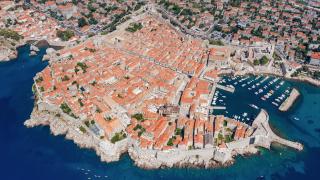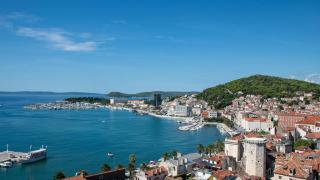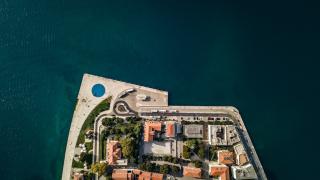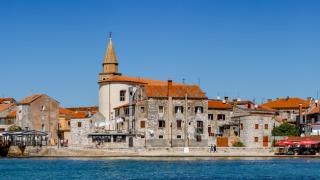Currency Confusion: Euro vs. Kuna
As of January 2023, Croatia has officially adopted the Euro, yet many visitors still mentally convert prices from kunas, which can lead to unexpected confusion. For instance, a meal at a mid-range restaurant typically costs between €15 and €25, while a cup of coffee may set you back about €2.50. To avoid falling prey to tourist inflation, it's wise to check menu prices before placing your order. Keep in mind that local ATMs usually provide better exchange rates than currency exchange offices, making them the more economical choice. A practical tip: familiarize yourself with common expenses prior to your trip. Knowing that a bus ticket in Zagreb costs around €1.50 can help you budget more effectively and sidestep any financial surprises.
The Last-Minute Accommodation Trap
Summer in Croatia brings a surge of tourists, particularly in popular destinations like Dubrovnik and Split. To sidestep the pitfalls of overpriced rooms and limited choices, aim to book accommodations at least three months in advance. For example, a standard hotel room in Dubrovnik might cost around €200 per night in July if booked last minute, while an early reservation could bring that down to €120. Consider exploring alternative lodging options like local guesthouses or apartments, which not only provide a more authentic experience but often come at better rates. Don’t forget to review cancellation policies; many places offer free cancellation for direct bookings. A bit of research on locations can save you from ending up far from the attractions, which could lead to additional transportation costs. By planning ahead, you can ensure a smoother, more enjoyable stay in this beautiful country.
Ferry Fumbles: Navigating the Adriatic
Ferries serve as a vital link for island hopping in Croatia, and effective planning is essential. During peak summer months, popular routes like Split to Hvar can sell out quickly, with ticket prices ranging from €10 to €25 depending on the season. Missing your ferry could mean a lengthy wait for the next one, so it’s imperative to understand the schedules. Ferries may operate less frequently in the shoulder seasons, with certain routes—like the ferry from Korčula to Dubrovnik—having limited daily departures.
Luggage restrictions can also complicate your journey; many ferries impose limits on baggage size and allow only one piece of luggage per passenger. To minimize stress, structure your itinerary around ferry schedules, ensuring you have plenty of time to explore each destination without the anxiety of missing your connections. Island hopping can be exhilarating, but it requires careful organization to make the most of your Croatian adventure!
Packing Perils: Essentials vs. Excess
Packing light is crucial when visiting Croatia, where the stunning coastlines and historical cities invite exploration. Be sure to include essentials like swimwear for those inviting Adriatic beaches, sunscreen to guard against the sun’s rays, and a universal adapter for your electronics—especially since many outlets are European-style, which can catch travelers off guard.
Leave unnecessary valuables at home; that expensive jewelry won't find much use here. Instead, opt for lightweight clothing that suits the warm Mediterranean climate, especially in July when temperatures can soar to 35°C (95°F). Always check the weather forecast before your trip, as storms can arise unexpectedly, particularly in autumn. By packing efficiently, you’ll save on airline fees and enjoy a more relaxed exploration of Croatia’s breathtaking landscapes. The goal is to travel comfortably while being fully prepared for all that this enchanting country has to offer.
Cultural Curiosities: Respecting Local Norms
Croatians greatly appreciate when visitors make an effort to engage with their language, so a simple "Dobar dan" (Good day) can make a lasting impression. In religious sites, such as the magnificent St. James Cathedral in Šibenik, it's important to dress modestly—women should cover their shoulders and knees, while men are expected to wear long pants. Tipping is customary; rounding up your bill or leaving a few euros is a kind gesture. For instance, if your meal costs €25, leaving €30 is a thoughtful way to show appreciation.
Engaging with locals can lead to enriching experiences, so don’t hesitate to greet shopkeepers or waitstaff with a smile and a friendly "Hvala" (Thank you). In bustling markets like Dolac Market in Zagreb, a warm approach can open doors to conversations about local produce and cherished recipes. Embracing these cultural curiosities not only enhances your travel experience but also fosters a deeper connection with the vibrant spirit of Croatia.








